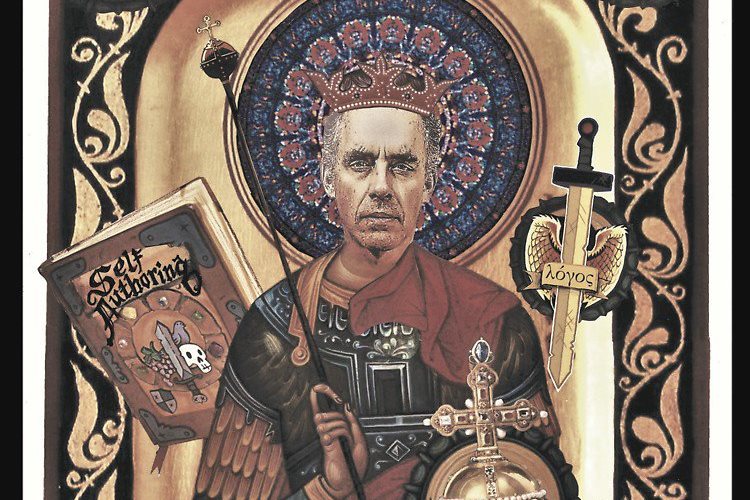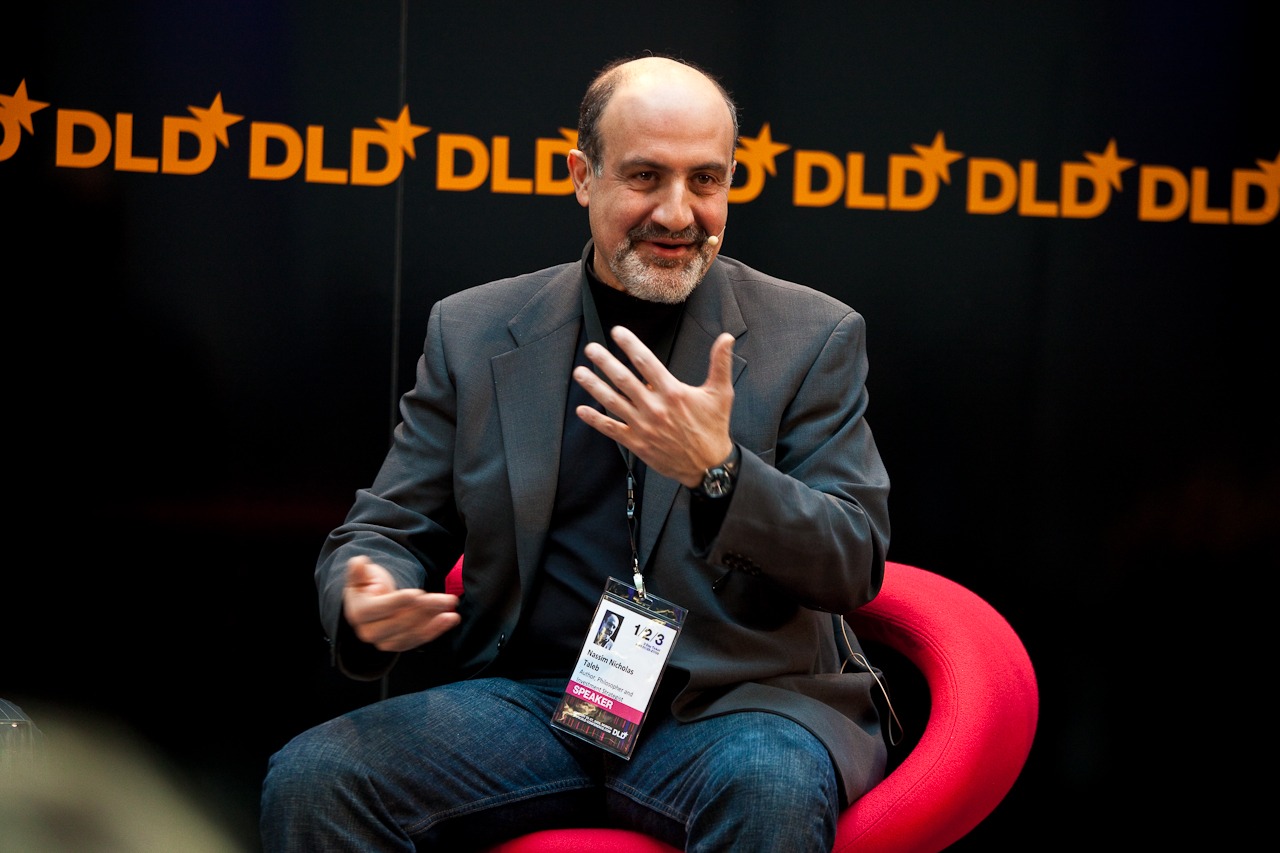Debunking the Secular Case for Religion

By Gurwinder Bhogal
Staff Writer
28/4/2020

Saint Jordan Peterson
Many people today no longer buy the notion that we need religion to enable us to reach paradise or avoid eternal damnation after we die. At the same time, though, some people, including some of the world’s most popular intellectuals, have taken to advancing a secular case for religion, arguing that, even if its claims about the supernatural are false, religious practices evolved to help preserve civilization and safeguard us against harm. Is there any truth to this? Do atheists underestimate the practical value of faith to society?
The idea that religion should be understood not as an epistemic (truth-seeking) system but as a purely functional one has its roots in Emile Durkheim’s 1912 book, The Elementary Forms of Religious Life, but it only became widespread around the turn of the millennium, when it was espoused in a series of pop-science books. Among them is Jordan Peterson’s 1999 book Maps of Meaning, in which he wrote:
Something we cannot see protects us from something we do not understand. The thing we cannot see is culture, in its intrapsychic or internal manifestation. The thing we do not understand is the chaos that gave rise to culture. If the structure of culture is disrupted, unwittingly, chaos returns.
For Peterson, a professor of psychology at the University of Toronto, the culture that protects us is powerful because it’s rooted firmly in an unimpeachable axiom – religious myth – whose teachings have been passed down to us by preceding generations, forming a kind of ancestral memory whose wisdom, accumulated over millennia, is far wiser than any single transient mind. Peterson believes that any attempt to curb religious practices could cause civilization to “forget” crucial behaviors that we didn’t understand, and regarded as irrational, but which are the secret foundations of society. This idea formed the basis of one of Peterson’s main arguments against antitheist Sam Harris in a series of public debates about religion in 2018, and it made Peterson a darling of evangelicals, who hailed him as a potential savior of Christianity.
For Peterson, religious teachings form a kind of ancestral memory whose wisdom, accumulated over millennia, is far wiser than any single transient mind.
Peterson’s view of religious tradition as a safeguard against civilizational chaos is echoed by other prominent intellectuals, like risk analyst Nicholas Nassim Taleb (who also employed it in a public debate with Sam Harris). Taleb’s view is all but identical to Peterson’s, although it draws less on Jungian psychology and more on risk analysis and decision theory. Taleb believes that religion is only ostensibly an epistemic tool; its claims to literal truth are false, but when acted upon as though they are true they instill in us decision-making abilities that exceed that of rationality. In a paper written with Rupert Read, Taleb argued “[R]eligion transmits heuristics of risk control across generations, and…does so in modes that only it can.” In his view, a single brain is a poor decision-making device; it can only process so much, and is constantly distorted by emotions and cognitive biases. In contrast, religion, being a mode of living that has proven itself over countless generations, is able to guard against dangers beyond the horizon of normal thought. Therefore, Taleb warns, curbing religious practices could prove catastrophic:
[H]umans actually don’t know whether human beings can live sustainably without something like religion…Until we have had a lot longer to develop non-religious heuristics that work, we should not throw the precautionary, religion-as-risk-management baby out with the superstitious, theological-claptrap bathwater.
This is known as a “Chesterton’s fence” argument; the principle that seeing no use in something is the worst reason to get rid of it, because it suggests one is blind to the real use. Taleb gives examples of the supposed hidden utility of religion, claiming, for example, that the commandments of the three Abrahamic religions to refrain from usury (lending with interest) were formulated to defend against financial crises like the 2008 recession.

“You fools! You’ll cause a recession!”
But this is a “just-so-story,” an unverifiable retroactive rationalization for some observed behavior. Anyone can cherry-pick a line of scripture from a holy book, and then cherry-pick an event from human history, and then say the one warned against the other. It would be more interesting to hear Taleb explain the decision-making wisdom of stoning adulterers to death (Leviticus 20:10), or the ancient Hindu custom of Sati where a widow throws herself on the funeral pyre of her husband, or the Indonesian tradition of Ma’nene where people dig up the carcasses of their loved ones and give them a fashion makeover.
Taleb and Peterson might claim that not all religious traditions are essential for prosperity; only some. But the question then arises, which ones, and since such traditions supposedly guard against dangers we can’t even comprehend, how could we possibly distinguish between the necessary and the knuckle-headed?
Could we, perhaps, identify the religious traditions that protect civilizations by looking at our history and finding the practices common to all long-lived civilizations? After all, Taleb has claimed that religion is “Lindy;” that is to say it has endured for a long time and therefore must be robust. But the main reason religious teachings have been robust is not that they’ve stood the test of time, but that those who tried to change them tended to be killed. Taleb also doesn’t explain what happens when religious practices differ or clash. Should people follow the precepts of the hardline Wahhabi brand of Islam, or those of a more moderate one? If the Abrahamic religions agree that usury leads to recessions, which of them do we consult on eating pork? Do we follow the Old Testament’s no or the New Testament’s yes, the green light of Christianity or the red light of Islam and Judaism?

Nicholas Nassim Taleb (Picture Credit: nrkbeta)
Neither Taleb nor Peterson appear to answer these questions. But many evolutionary psychologists have: they say we should not blindly accept any religious edict, because none contain any inherent wisdom. The dominant view among evolutionary psychologists is that religion is not an evolutionary adaptation but a “spandrel,” a by-product of other adaptations. Richard Dawkins has compared religion to the tendency of moths to fly into flames: the moth did not evolve to fly into flames; it evolved to navigate by the light of the moon. Since it’s unable to distinguish between moonlight and candlelight, its attempt to keep a candle-flame in a fixed ommatidium (unit of a compound eye) causes it to keep veering around the flame, until it spirals into it. Dawkins argues that religion didn’t evolve for a purpose; it merely exploits the actual systems we evolved to navigate the world. An example of such a system might be what psychologist Justin Barrett calls the Hyperactive Agent Detection Device, the propensity to see natural phenomena as products of design. Basically, in our evolutionary history, mistaking a natural phenomenon for an artifact was far less risky than mistaking an artifact for a natural phenomenon, so our brains erred toward the former.
The dominant view among evolutionary psychologists is that religion is not an evolutionary adaptation but a “spandrel,” a by-product of other adaptations.
A minority of experts reject the view that religion is a spandrel, insisting that it’s an adaptation (a view known as adaptationism). According to the anthropologist William Irons, religion evolved to help us find common purpose and organize into societies. One way it may have done this is by solving the “free-rider problem,” instilling in its adherents the responsibility to pull their weight. The best evidence for this is a study conducted by anthropologist Richard Sosis, who found in an analysis of 19th Century utopian communes that they tended to last longer if they were rooted in religion than if not. However, almost all the secular movements in the dataset were socialist, and thus the study was not religion v secularism but religion v socialism – an ideology that may well have made these communes less stable. Secondly, the scope of the study was limited to small utopian communes in 19th Century United States, and it’s unclear if the same results would be observed in larger societies, or societies in other parts of the world. More recent and robust studies also indicate that you don’t need religion to solve the free-rider problem in large societies. A study conducted by researchers at the University of Oxford, for example, analyzed 414 societies over 10,000 years, and found that moralizing religions appeared after, not before, complex societies developed. The preponderance of evidence suggests, therefore, that moralizing religions need complex societies, not the other way around.
Even so, adaptationist views of religion could conceivably carry some truth, as they don’t necessarily conflict with the spandrel theory (for example, a religious trait could have originated as a spandrel and then been refined into an adaptation). But even if elements of religion did become adaptive, this doesn’t mean they’re still adaptive. In his book, The Secret of our Success, evolutionary biologist Joseph Henrich observed the divination rituals of Canada’s Naskapi Hunters, in which they would heat the shoulder bones of caribou and read the cracks to tell them where to go to find their prey. Henrich claimed that this randomized their hunting patterns, making it harder for caribou to predict (and thus avoid) their movements than if the hunters had chosen where to go based on memory. It’s a nice story, and it may even be true, but if it is, the ritual-as-randomizer heuristic is no longer useful for us city-dwellers, because we get our meat from the grocery store.

Shang Dynasty oracle bone
If the idea of religion as evolutionary adaptation is a fringe view among experts, then the view of religion as evolutionary adaptation that is still adaptive is a fringe view within a fringe view. This should come as no surprise when one actually considers the research into the effect of religion on today’s societies: for instance, a study of 109 countries published in the journal Scientific Advances found that secularism drives economic prosperity, while the higher standard of living across the board in more godless countries suggests religious traditions do not help people make better decisions, and are not necessary for the preservation of society.
Of course, economic growth and living standards are not absolute measures of societal well-being. One can be well-clothed and well-fed, but dead inside. And some have indeed pointed to the rise of mental illness in today’s developed societies. The neuroendocrinologist Robert Sapolsky has argued that religious belief can reduce stress and anxiety, by offering a sense of purpose and meaning in a cruel, disorienting world. He cites a 2013 study which found that a negative correlation between the belief in a benevolent God and with four psychiatric maladies. However, it should be noted that the study also found a positive correlation between belief in a punitive God and four psychiatric maladies, including anxiety and paranoia. On this issue, religion is a double-edged sword: it may offer some people meaning and purpose, but that meaning and purpose can bring its own drawbacks, like the burden of believing you’re being watched and judged every second of your life by an omniscient celestial dictator who disapproves of you having sex with certain people in certain ways or even thinking about doing so, and who might consign you to an eternal torture-chamber for your transgressions. Such emotional baggage may be one reason why studies far larger than those cited by Sapolsky, like the UN World Happiness Report, have found that people in secular countries tend to describe themselves as happier than those in religious countries.
And even if the net effect of religion is to somehow reduce overall stress and anxiety, this may not mean it’s useful or desirable. If religion evolved for a purpose, might not stress and anxiety have done so too? What if such discomforts are even more important for human flourishing than religion? Most of us would probably agree that without stress or anxiety, we’d get very little done.
In the end, no one can yet say for sure how religion evolved. There is no “religion gene” whose lineage can be traced, no fossilized record of the development of belief. The best we currently have is circumstantial evidence and a priori reasoning, and very little of it supports the view that religion evolved to benefit society, while even less supports the view that it remains beneficial in our present era. The only way to believe in the secular case for religion, then, is ironically through a leap of faith.
